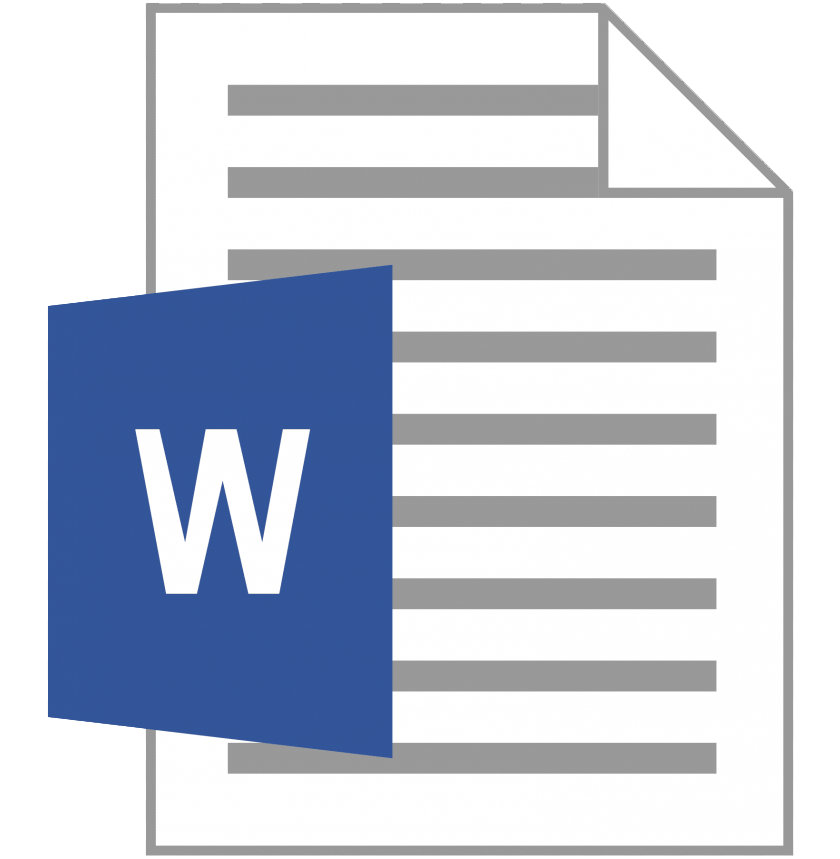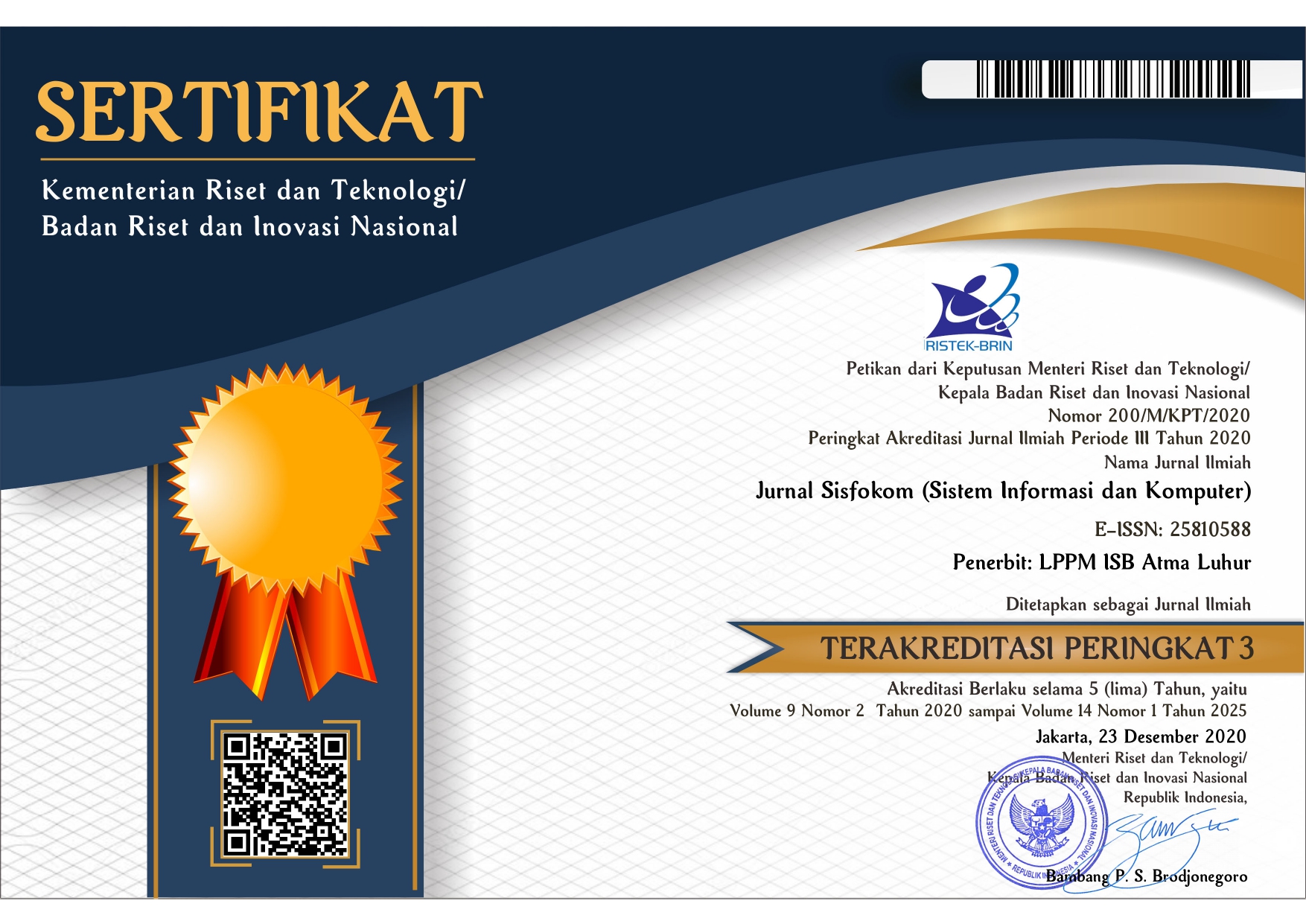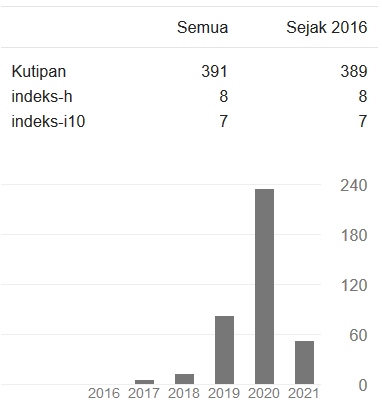Analisis Sentimen Terhadap Isu Penundaan Pemilu di Twitter Menggunakan Naive Bayes Clasifier
DOI:
https://doi.org/10.32736/sisfokom.v11i2.1412Keywords:
penundaan pemilu, analisis sentimen, naive bayes classifier, twitterAbstract
Penundaan pemilu Indonesia menjadi isu terhangat dan kontroversial baru-baru ini. Isu ini dilontarkan pertama kali oleh ketua umum PKB, Muhaimin Iskandar setelah menerima pelaku UMKM, pengusaha dan para analis ekonomi di ruang Delegasi DPR RI, Nusantara III, Jakarta pada Rabu, 23 Februari 2022 [14]. Isu penundaan pemilu ini menyebabkan sentimen publik terpecah menjadi tiga, yaitu sentimen negatif, netral, dan positif. Untuk mengetahui persentase sentimen terbesar, diperlukan suatu analisis sentimen terhadap data cuitan twitter pada periode waktu 1 Januari 2022 sampai dengan saat penelitian ini dilakukan (27 Mei 2022). Dengan menggunakan model Naive Bayes Classifier, kita mencoba memetakan analisis sentimen sebelum Muhaimin Iskandar mengutarakan isu (31.840 data cuitan) dan setelah Muhaimin Iskandar mengutarakan isu (151.878 data cuitan). Analisis sentimen di durasi waktu sebelum Muhaimin Iskandar mengutarakan isu diperlukan untuk mengetes, apakah klaim penundaan pemilu adalah keinginan rakyat adalah benar. Sedangkan analisis sentimen di durasi waktu setelah Muhaimin Iskandar mengutarakan isu diperlukan untuk melihat polarisasi di twitter, seberapa besar dukungan maupun penolakan terhadap isu tersebut. Hasil penelitian yang dilakukan menunjukkan masyarakat baru membahas isu penundaan pemilu setelah dibahas oleh Muhaimin. Sedangkan sentimen terhadap isu penundaan pemilu setelah dilontarkan oleh Muhaimin cenderung menunjukkan sentimen positif sebesar 60.581 cuitan unik, dengan 58.998 cuitan unik yang menunjukan sentimen negatif, sedangkan sisanya, yaitu sebesar 32.291 menunjukkan sentimen netral.References
"Gus Muhaimin Usul Pemilu Ditunda atas Masukan Pengusaha dan Pelaku UMKM." Tempo. https://nasional.tempo.co/read/1564013/gus-muhaimin-usul-pemilu-ditunda-atas-masukan-pengusaha-dan-pelaku-umkm (accessed 30 Mei 2022).
Saleem Alhabash and Mengyan Ma, “A Tale of Four Platforms: Motivations and Uses of Facebook, Twitter, Instagram, and Snapchat Among College Students,” SAGE journals, p. 13, Februari 2017.
Arpit Khare, Amisha Gangwar, Sudhakar Singh, Shiv Prakash “Sentiment Analysis and Sarcasm Detection of Indian General Election Tweets,” arXiv, 2022.
A. A. Meylan Wongkar, "Sentiment Analysis Using Naive Bayes Algorithm Of The Data Crawler : Twitter," International Conference on Informatics and Computing (ICIC), pp. 1-5, 2019.
R. D. Ranganathan Chandrasekaran, Harsh Shah, Vivek Kumar, Evangelos Moustakas, "Examining Public Sentiments and Attitudes Toward COVID-19 Vaccination: Infoveillance Study Using Twitter Posts," JMIR INFODEMIOLOGY, vol. 2, no. 1, 2021.
R. D. Samira Yousefinaghania, Samira Mubarekab, Andrew Papadopoulosc, Shayan Sharifd, "An analysis of COVID-19 vaccine sentiments and opinions on Twitter," International Journal of Infectious Diseases, vol. 108, pp. 256-262, 2021
C. A. H. Khairiyah Mohamed Ridhwan, "Leveraging Twitter data to understand public sentiment for the COVID‐19 outbreak in Singapore," International Journal of Information Management Data Insights, vol. 1, no. 2, 2021.
A. H. K. Mohammed H. Alsharif, Khalid Yahya, and Shehzad Ashraf Chaudhry, "Machine Learning Algorithms for Smart Data Analysis in Internet of Things Environment: Taxonomies and Research Trends," Symmetry, 2020.
S. Sawla, "Introduction to Naive Bayes for Classification." [Online]. Available: https://medium.com/@srishtisawla/introduction-to-naive-bayes-for-classification-baefefb43a2d
A. Troya, "Aspect-based Sentiment Analysis of Social Media Data with Pre-trained Language Models," MASTER OF SCIENCE, FACULTY OF SCIENCE, UNIVERSITY OF AMSTERDAM, 2021.
R. H. P. Akilandeswari, Sumanth.KO.M, "Sentiment Analysis using Machine Learning through Twitter Streaming API," International Journal of Engineering & Technology, vol. 7, pp. 1168-1174, 2018.
A. W. Ariel Elbert Budiman, "Analisis Pengaruh Teks Preprocessing Terhadap Deteksi Plagiarisme Pada Dokumen Tugas Akhir," Jurnal Teknik Informatika dan Sistem Informasi, vol. 6, 2020.
S. Mukhopadhyay, Advanced Data Analytics Using Python With Machine Learning, Deep Learning and NLP Examples. Apress, 2018.
F. K. A. b. Amira M. Idrees, "A COLLABORATIVE EVALUATION METRICS APPROACH FOR CLASSIFICATION ALGORITHMS," JOURNAL OF SOUTHWEST JIAOTONG UNIVERSITY, vol. 55, no. 1, 2020.
D. P. R. Willy, Samsuryadi, "Perbandingan Algoritma Random Forest Classifier, Support Vector Machine dan Logistic Regression Clasifier Pada Masalah High Dimension (Studi Kasus: Klasifikasi Fake News)," JURNAL MEDIA INFORMATIKA BUDIDARMA, vol. 5, no. 4, pp. 1720-1728, 2021.
Downloads
Published
Issue
Section
License
The copyright of the article that accepted for publication shall be assigned to Jurnal Sisfokom (Sistem Informasi dan Komputer) and LPPM ISB Atma Luhur as the publisher of the journal. Copyright includes the right to reproduce and deliver the article in all form and media, including reprints, photographs, microfilms, and any other similar reproductions, as well as translations.
Jurnal Sisfokom (Sistem Informasi dan Komputer), LPPM ISB Atma Luhur, and the Editors make every effort to ensure that no wrong or misleading data, opinions or statements be published in the journal. In any way, the contents of the articles and advertisements published in Jurnal Sisfokom (Sistem Informasi dan Komputer) are the sole and exclusive responsibility of their respective authors.
Jurnal Sisfokom (Sistem Informasi dan Komputer) has full publishing rights to the published articles. Authors are allowed to distribute articles that have been published by sharing the link or DOI of the article. Authors are allowed to use their articles for legal purposes deemed necessary without the written permission of the journal with the initial publication notification from the Jurnal Sisfokom (Sistem Informasi dan Komputer).
The Copyright Transfer Form can be downloaded [Copyright Transfer Form Jurnal Sisfokom (Sistem Informasi dan Komputer).
This agreement is to be signed by at least one of the authors who have obtained the assent of the co-author(s). After submission of this agreement signed by the corresponding author, changes of authorship or in the order of the authors listed will not be accepted. The copyright form should be signed originally, and send it to the Editorial in the form of scanned document to sisfokom@atmaluhur.ac.id.









